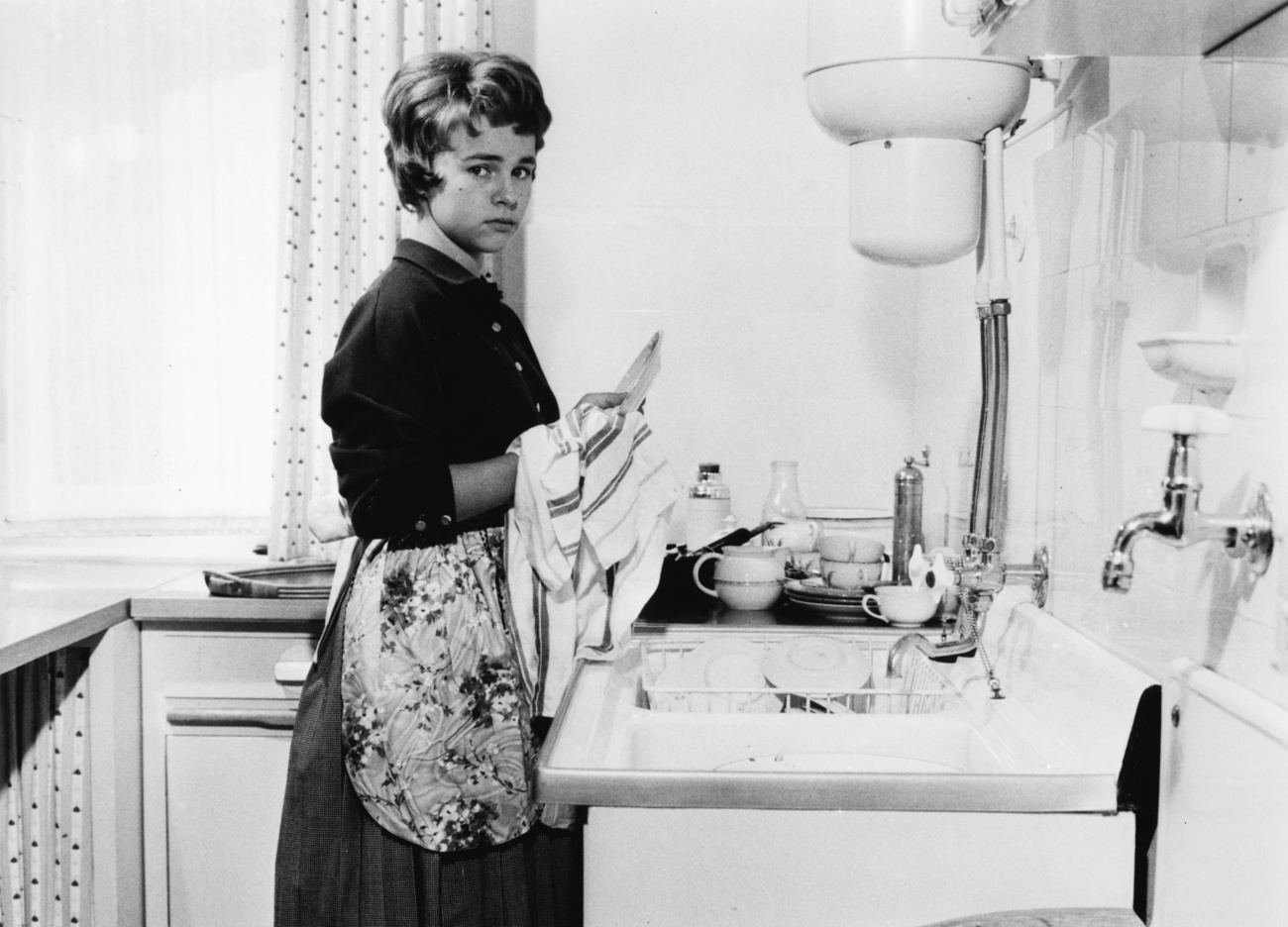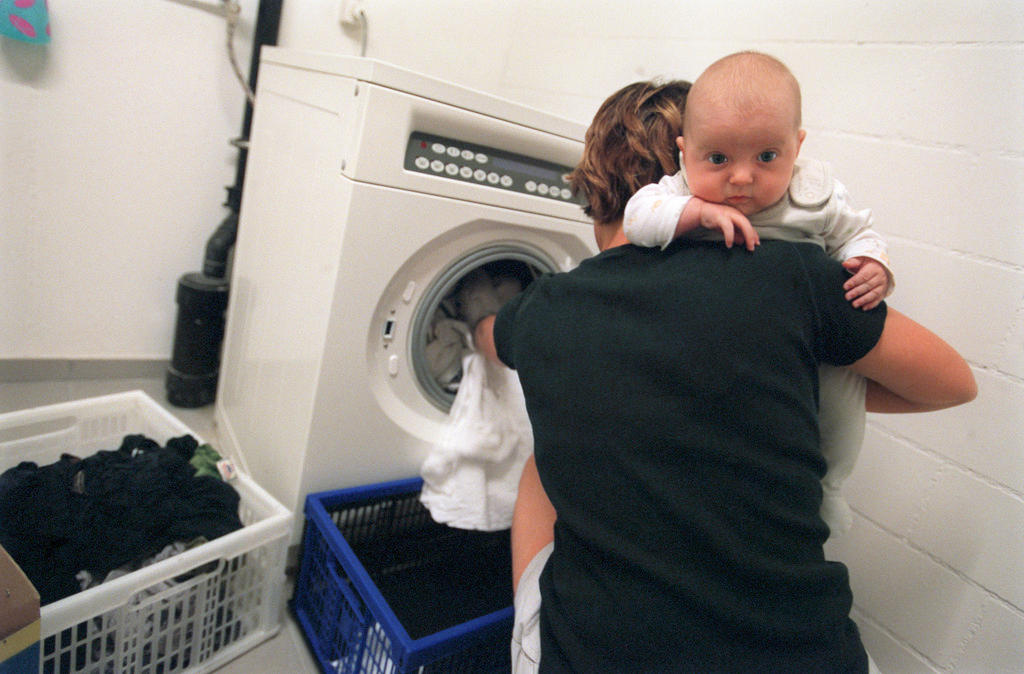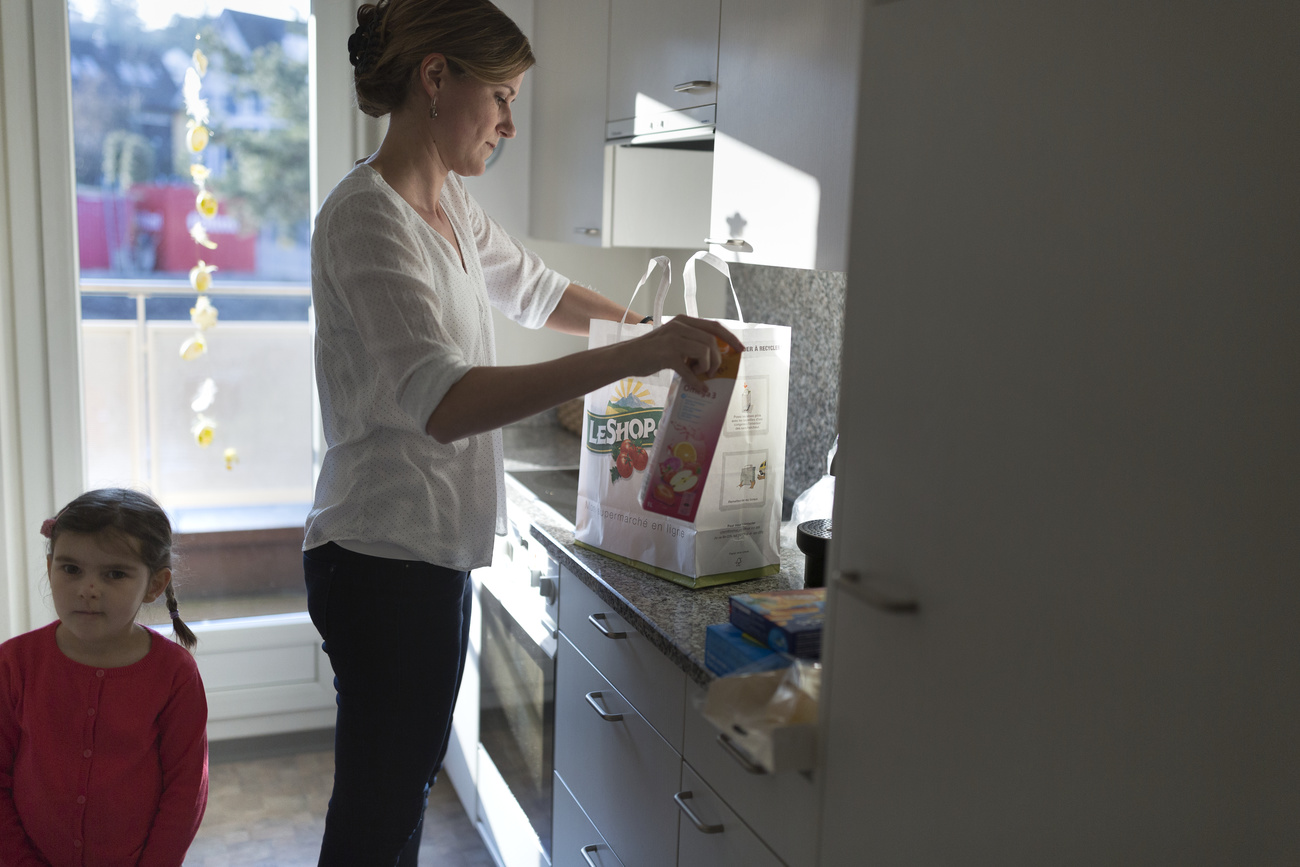The pandemic gender gap

If care work were fully paid, it would be the biggest sector of the Swiss economy. The pandemic has had a very negative effect in precisely this area with women paying the price.
The economist and writer Hans Rusinek described care work as a “blind spot” in mainstream economics in a commentary on the German radio station Deutschlandfunk. “Just imagine if we simply forgot to include the biggest sector in all our analyses of the economic situation,” he said. This is exactly what happened in Switzerland during the pandemic. Unpaid work, which includes housework, family work, honorary and voluntary activities, increased its share in Swiss economic activity during the pandemic, according to a report by Sotomo.
“The extra workload of childcare and home schooling weighed more heavily on women than on men,” the report published earlier this year said.
Statistics by the Swiss Federal Statistical Office (FSO) showed that 9.2 billion hours were worked unpaid in Switzerland in 2016. That compares with 7.9 billion spent on paid work.
Simply ignored
While beer consumption or car production are included in official economic calculations, areas such as care work or the environment – critical to the economy – remain invisible, says Rusinek. That leads to a situation where, for example, childcare by women no longer has any connection to economic considerations.
“It is a triple irony that care work only has a highly peripheral role, divided between unpaid and underpaid work, and is overwhelmingly undertaken by women,” wrote Rusinek, who is completing his doctorate at St. Gallen University on the subject of transforming the economy. The result of this economic logic is a warped understanding of reality, he argues.
Unpaid work is defined as tasks that are not paid but in theory could be carried out by a third party for money. This includes housework and family work, honorary and voluntary work in clubs and organisations (institutional voluntary work), and personal assistance for acquaintances and relatives who don’t live in the same household (informal voluntary work). (FSO).
This economic and social undervaluation of care work has consequences. According to a 2020 study by the non-governmental organisation Oxfam, women worldwide earned on average 23% less than men and were more often compelled to do insecure or badly paid work.
At the same time, men have more than 50% more assets than women. Women also have much less social security and are less often eligible for a pension – almost 65% of those who receive no pension at retirement age are women.
Even more inequalities
People assume that these discrepancies are often explained by the fact that fewer women work, or that they work less. However, this assumption is not true, Oxfam says. Worldwide, women on average work more hours per day than men in every region of the world. But women, unlike men, are not paid for more than half of their work.
A central factor in this inequality is that globally three-quarters of the unpaid housework, nursing and care work is performed by women, according to Oxfam.
JUSO President Ronja Janssen: “We need fair salaries and an equal distribution of unpaid work”
The coronavirus crisis has deepened these inequalities, says Saadia Zahidi, managing director of the World Economic Forum (WEF). The pandemic has had an enormous impact on equality in the workplace and at home, and has therefore reversed many years of progress, she says.
According to the Global Gender Gap ReportExternal link of 2021, the amount of time required to close the gender gap has increased by one generation from 99.5 years to 135.6 years.
During the crisis, work considered as “typical women’s work”, such as childcare of sick children or homework, was in demand. Survey data from IPSOS (Global Market Research and Public Opinion) showed that after the closure of childcare facilities, responsibility for housework, childcare and nursing the elderly fell disproportionately to women, which led to a higher burden of labour and lower productivity.
Care remains women’s work
Moreover, women are more often employed in the sectors that were the hardest hit by lockdowns. The additional burdens of care at home came on top of this, the WEF said in its analysis.
In Switzerland care remains mostly women’s work. According to a 2021 report by the Federal Statistical Office, mothers with a partner and a youngest child under the age of 15 spent about 30 hours a week on housework in 2020, almost double the 17 hours a week spent by fathers on such duties. Mothers invested about 50% more time in childcare (22.3 hours compared with 14.7 hours a week.)
Progress towards gender equality has stalled in several big economies and sectors, the WEF writes. In contrast with the disparities in the areas of education and health (that gap is expected to close in about 14.2 years), the gender gap in the economy remains the biggest.
This gap is estimated to disappear in 267.6 years. This slow process has to do with opposing trends: while the share of qualified experts who are women continues to increase, differences in salary remain and women in leadership positions are still rare.
The future looks no better
On top of the burden of care, there are several other facts which point to a continuing deterioration in gender equality. Women are more interested in social occupations and are badly represented in well-paid technical jobs.
The latter are the occupations that the WEF predicts will be the “jobs of tomorrow.” In cloud computing, for instance, only 14%of employees are women; in engineering, the figure is 20% and in data processing and artificial intelligence, 32%.
Oxfam points out that “priceless and unpaid” care work often means less employment and therefore limited participation in the economy and culture, less political representation, and in extreme cases, poverty in old age. This “bitter truth” results in a discrepancy, says Oxfam: As enriching as care work is for society, it impoverishes many women who do it.

In compliance with the JTI standards
More: SWI swissinfo.ch certified by the Journalism Trust Initiative







Join the conversation!